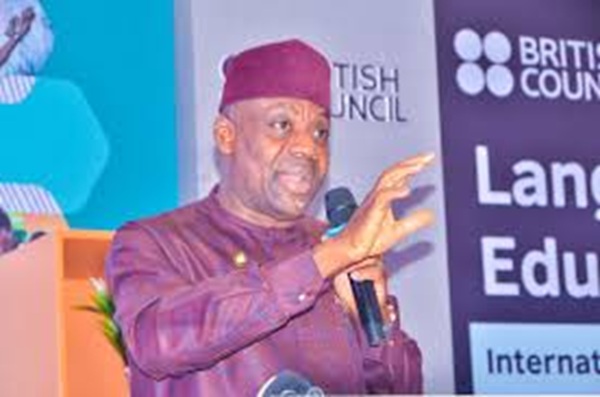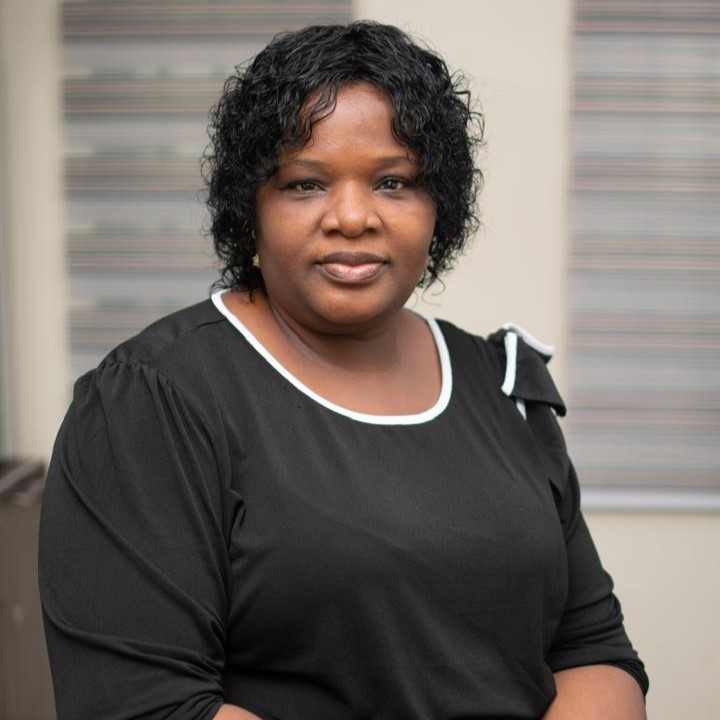“Stop anything about the NLP – perish and burn it,” was all the Minister of Education, Tunji Alausa, had to say in discarding Nigeria’s National Language Policy (NLP) and Mother Tongue (MT) Education, a product of many years of agitation and intellectual works by erudite Nigerian scholars. His remarks, made without minding whose ox is gored, have provoked a wave of backlash. Stakeholders are now up in arms, describing the minister’s position as rash, ill-advised, imperialistic and unacceptable, and are demanding an immediate reconsideration. DevReporting writes:
The 69th meeting of Nigeria’s National Council on Education (NCE) was significant for various reasons. The choice of the location and the major decision taken at the forum are quite antithetical.
Akure, the headquarters of Ondo State, where the meeting was held, is just about 100 kilometres away from Ile-Ife, where a former Minister of Education, Babs Fafunwa, in 1976, carried out his “Ife Primary Education Study” to justify the importance of the use of mother tongues as languages of instruction in basic schools.
Ondo State is also one of the states carved out of the old Western Region, where the late sage and political titan, Obafemi Awolowo, introduced the free education programme exactly 75 years ago.
Apart from Mr Fafunwa’s experimental study, scholars say many other research works have confirmed the efficacy of deploying languages of the immediate environment for instruction in basic schools for cognitive learning.
But Mr Alausa, an American-based medical practitioner, wouldn’t want to have any of such. His reasons were many- with over 500 indigenous languages, a lack of teachers and instructional material for these languages, and the mobility of many Nigerian families, causing disruptions in teaching and learning for young, impressionable minds, teaching in mother tongues can be counterproductive.
The minister said his decision also stemmed from data collected on students’ performance in major public examinations, including the Senior School Certificate Examinations (SSCE), Basic Education Certificate Examination (BECE), and Common Entrance Examination, among others.
ALSO READ: Media Under Pressure: Nigerian Editors demand tax relief amid soaring newsprint, operational costs
But experts have faulted the minister’s position, urging him to produce the results of the research conducted to arrive at such a conclusion, “before rubbishing the arduous evidence-based work of scholars.”
About NLP and Mother Tongue Education
In 2022, the Nigerian government approved a National Language Policy (NLP) that provided that, from early childhood care to Basic 3, the language of instruction would be the mother tongue or the language of the immediate community.
The policy aimed to promote indigenous languages, recognise their equal status and improve early-childhood learning outcomes; English was to remain the official language for later education and formal settings.
Josiah Ajiboye, a professor of Social Studies and Environmental Education, and the first National Vice President of Nigeria’s Academy of Education, was the Registrar and Chief Executive Officer of the Teachers Registration Council of Nigeria (TRCN), when the policy was adopted.
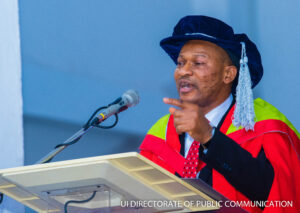
According to Mr Ajiboye, the policy evolved through a rigorous academic work involving the Linguistic Association of Nigeria, the Nigerian Academy of Letters, and other professional bodies. The policy, he said, was presented by the then Minister of Education, Adamu Adamu, to the Federal Executive Council (FEC) for approval, and was later adopted by the National Council on Education (NCE).
Mr Ajiboye said: “Since the 1976 Fafunwa project, there has been extensive debate on mother-tongue education. It was accepted that in the first three years of primary education, children should learn in their immediate environment language alongside English. From primary four to six, both languages should be combined. Nigeria is not implementing this in isolation; many countries in East Asia have adopted similar models. Even in Chinese universities offering programmes in English, knowledge of Chinese is required.
“It is one of the darkest moments because you cannot just erase a policy with the wave of a hand. What is the scientific underpinning for this, and why was research conducted in the first place? This is a turning point we had hoped to avoid”.
Sudden policy reversal
Rumours had earlier filled the air that the minister was hell-bent on cancelling the NLP and the mother tongue programme, but experts had anticipated a robust debate at the 69th NCE meeting.
At the meeting, themed: “Quality Education, Data and Professionalisation of Teaching: A Tool for Enhanced National Development,” the 8th Ministerial Memo centred on the NLP review.
In what some stakeholders described as dramatic, the NCE approved the minister’s prayers that: English Language shall henceforth be the sole medium of instruction at all levels of education in Nigeria; that Nigerian languages may be taught only as subjects, and only where teachers, curricula, and materials are available; and that the National Language Policy (2022) be suspended.
The minister also reportedly went further to “issue a sweeping directive to the Nigerian Educational Research and Development Council (NERDC) to “stop anything about the NLP- perish and burn it,” noting that the policy is not merely suspended but “stands cancelled.”
According to the minister, Nigerian children had been performing abysmally in public examinations because they were being taught in their mother tongues.
Mr Alausa explained that the decision to cancel the policy followed extensive data analysis showing that the use of mother tongue as the main medium of instruction had negatively affected learning outcomes in several parts of the country.
“We have seen a mass failure rate in WAEC, NECO and UTME in certain geo-political zones of the country, and those are the ones that adopted this mother tongue in an oversubscribed manner. This is about evidence-based governance. English now stands as the medium of instruction from pre-primary, primary, junior secondary and senior secondary to the tertiary education level.”
He added that: “Using the mother tongue language in Nigeria for the past 15 years has literally destroyed education in certain regions. We have to talk about evidence, not emotions.”
Mr Alausa said that data gathered from schools nationwide revealed that students taught primarily in indigenous languages recorded higher failure rates in national examinations and struggled with basic English comprehension.
“The national policy on language has been cancelled. English now stands as the medium of instruction across all levels of education,” he said.
He urged education stakeholders with differing views to present verifiable data to support their positions, adding that the government remained open to evidence-based dialogue to strengthen the education sector.
Shortly before NLP was axed, sources explained that a minority language, Kilba, reportedly spoken in five out of the 21 Local Government Areas of Adamawa State, was thrown out as unqualified to be taught in Nigerian schools. The proponents of the Kilba language had developed its curriculum for its adoption and approval, but the request suffered a great below.
The decision, though taken some days earlier in Akure, was announced by the minister at the 2025 Language in Education International Conference organised by the British Council in Abuja. The British Council must have welcomed this new decision with open arms since it aligns with its agenda of perpetuating the English Language in Nigeria and other parts of the world.
Stakeholders kick
The abrupt reversal of the mother-tongue medium of instruction in Nigerian schools has, however, sparked widespread outrage among academics, linguists, education experts, and parents, among other stakeholders.
In its immediate response, the Nigerian Academy of Letters (NAL) condemned the policy reversal, describing it as a major setback that undermines decades of advocacy for indigenous languages, threatening cultural identity, and that it contradicts constitutional provisions on mother-tongue instruction, and risks renewed linguistic marginalisation.
It noted that the National Language Policy (2022), which was designed to deliver mother-tongue-based multilingual education for the first six years of schooling, was the product of years of research, consultation and expert input.
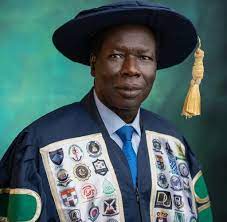
In a statement signed by its president, Andrew Haruna, a professor, the Academy said the government’s dismissal of the policy “without due regard for expert knowledge and public opinion” reflects poorly on its commitment to evidence-based policy making.
NAL stressed that international research and UNESCO guidelines consistently show that mother-tongue education improves literacy, cognitive development and academic achievement. It cited Professor Fafunwa’s work, as well as international examples such as Bolivia and Ghana, which adopted multilingual policies inspired by Nigeria.
“It is ironic that while other African countries are following Nigeria’s lead, Nigeria is reversing a policy it has not even implemented,” the Academy said, adding that an approved implementation framework already exists under the 2022 policy. Abruptly cancelling it, it warned, creates the impression of a government “disconnected from the aspirations of the Nigerian people,” the statement reads in part.
The Academy further described mother-tongue instruction as “the fountainhead of creative and independent thinking,” arguing that denying children access to it “impoverishes their intellectual and imaginative potential.” It questioned the education minister’s vehemence in rejecting a policy “that has not been implemented.”
It urged the government to reinstate the policy, retain Nigerian languages in the core curriculum, and invest in teacher training and learning materials. It also called for collaboration with linguistic experts, support from international partners to align with global standards, and stronger media advocacy to promote linguistic inclusion.
“Silence is not an option. Protecting our languages is a national responsibility and a moral obligation to future generations,” the statement added.
Also reacting, the Linguistics Association of Nigeria (LAN) described the cancellation of NLP as a blatant display of linguistic discrimination and a contradiction of Nigeria’s multilingual ideals.
A position statement signed by the association’s President, Gideon Omachonu, a professor, noted that the rejection of the Kilba language curriculum “further exposed the deep-seated bias against the indigenous languages and set the tone for the Ministerial Session’s later decision to cancel the entire National Language Policy.”
He said: “These developments mark a major policy reversal with far-reaching implications for Nigeria’s linguistic diversity, cultural identity, and intellectual growth. They erase decades of advocacy for indigenous language empowerment and undermine the linguistic rights, constitutional and educational provisions that promote the use of Nigerian languages in early education”.
Mr Omachonu called on “linguists, educators, cultural advocates, traditional councils and all defenders of Nigeria’s linguistic heritage to rise to this challenge and speak up with one voice.”
He said: “The soul of Nigeria’s multilingual identity is under siege. Silence now would mean consenting to the erasure of our languages, our culture, indigenous knowledge systems and our collective memory.”
Experts react
In his intervention, an Emeritus Professor of History of Education at the University of Ibadan, Michael Omolewa, expressed dismay at the policy reversal, noting that experts like Ayo Bamgbose, a professor, who has been engaged with the issue for over 57 years, would be heartbroken to hear the news.
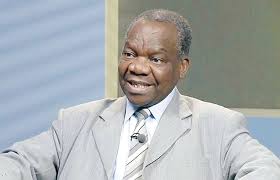
He lamented the passing of Professor Banjo, a renowned scholar of English, whose early education in Yoruba at home shaped his linguistic proficiency, highlighting the importance of mother-tongue grounding in learning additional languages.
He said: “Your capacity to learn another language is largely determined by your understanding of your own mother tongue. Even when reacting to a situation, people often think in their mother tongues first, then translate into other languages, including English.”
Reflecting as a historian, Mr Omolewa traced the debate over local versus foreign language use as a means of instruction back to September 1842, when the first schools were established in Nigeria. He referenced Sunday Tomori, the first professor of English as a foreign language, whose 1973 inaugural lecture examined teaching in local versus foreign languages and concluded, based on rigorous research, what the best approach should be.
Meanwhile, a professor of Adult Education and former Provost of the College of Education (now University of Education), Ilesa, Osun State, Kolawole Kazeem, described the reversal as the usual policy somersault and a tendency for every minister to tinker with existing frameworks to suit personal preferences or appease select academic circles.
“I think it is a bad omen for the future of the education system. While other countries are trying to uphold and deepen indigenous approaches to learning, we are here cancelling it,” he said.
Policy reversal ill-advised – Egbokhare
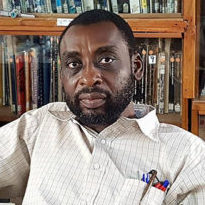
The former President of the Academy of Letters and professor of Linguistics, Francis Egbokhare, described the ban as a return to a colonial enterprise and labelled it ill-advised.
“No nation promotes a foreign culture or language at the expense of its own people. Mother-tongue education offers a cognitive advantage. Learning in a foreign language puts students at a disadvantage from the start,” he said.
Mr Egbokhare noted that many Nigerian leaders suffer from poor cultural grounding due to overreliance on foreign languages, which affects identity and conceptual understanding.
“Language is the basis of how we understand reality and engage with the world. Denying children instruction in their mother tongue impoverishes their intellectual development,” he argued.
He criticised the minister’s claim that the reversal was research-based, pointing out that it ignored decades of studies, including the Fafunwa’s Ife Primary Education Study.
“Ghana recently followed Nigeria’s lead in adopting mother-tongue education, yet we are reversing it. Bolivia, too, eradicated illiteracy using mother-tongue instruction. So what is the minister talking about?” Mr Egbokhare asked.
Parents, Teachers react
A teacher and parent, Titilope Morakinyo, told DevReporting that the policy reversal could create a gap in students’ learning process, noting that assimilation levels differ from child to child.
She explained that suspending indigenous languages in early education would have serious consequences for both children and the nation. “When students cannot learn in a language they understand, their confidence suffers and their academic foundation weakens. Our local languages carry our culture, values, and identity.”
Another parent, Tolulope Oduola, a businesswoman, condemned the policy reversal, stressing that indigenous mother tongues are crucial for understanding English and grounding children in their own language.
She explained that learning in local languages enables faster and deeper comprehension, and allows children to seek clarification from parents at home.
“If children are taught in their mother tongues, they can extend any unclear parts to their parents for explanation. Both languages can also be used together in schools,” she said.
Others think otherwise
A public analyst, Mohammed Abdullahi, highlighted the practical challenges of adopting a single indigenous language nationwide, stressing that English remains the most common language that unites the country and enables Nigerians to compete globally.
Nonetheless, he emphasised the importance of continuing to teach the three major indigenous languages in schools to preserve Nigeria’s culture and heritage. “I am also an advocate for teaching Nigeria’s unique colloquial language, Pidgin English, in schools, as it offers a distinct contribution to the English language globally and gives Nigerians a special linguistic advantage,” he said.
Similarly, a father, Sam Johnson, questioned why Nigeria is abandoning indigenous languages when other countries actively encourage learning their native languages.
“If you go to other countries, they welcome foreigners interested in learning the local language, like Germany, where scholarships are offered to study German. So why is Nigeria different? Why are we suddenly switching to English as the only medium of instruction?” he asked.
He acknowledged the challenges of mother-tongue instruction, noting that the government may also be considering students’ ability to pass O’level exams.
“Looking at it, both approaches have advantages and disadvantages. That’s just how I see it,” he added.
Summit holds on Nigerian languages
Meanwhile, the Department of Linguistics and African Languages at the University of Ibadan, and other stakeholders, are set to hold a maiden edition of the Nigeria Languages Summit. It is scheduled to hold on Friday, 28 November, and to be chaired by an Emeritus Professor, Ayo Bamgbose.
Experts told DevReporting that the summit will mark one of the first practical reactions to the government’s latest action.

